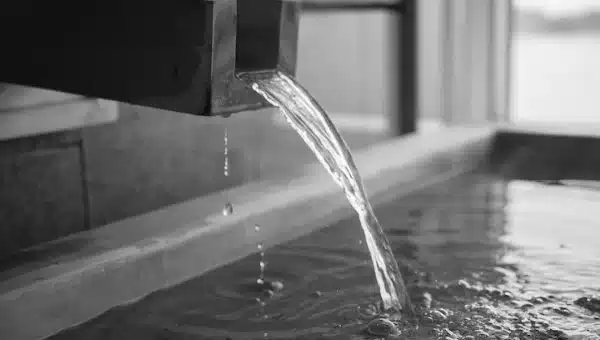Have you ever wondered how much a water heater cost including its installation? The answer is not a simple one, as numerous variables can affect the final price. This article aims to provide a comprehensive breakdown of the average water heater cost, making it easier for you to estimate and budget for this significant home improvement.
Table of Contents
The Basics of Water Heater Cost
The cost of a water heater is not a straightforward figure; it’s an amalgamation of several separate charges. At its most basic, the price of a standard water heater itself fluctuates between $800 and $1200, where high-end models represent the upper price limit. However, this does not encapsulate the total cost as it overlooks an integral part of the process – the installation.
Generally, the cost for installation swings between $800 and $1,000. Thus, the total price you could expect to pay lies somewhere between $1,600 and $2,200. Nevertheless, bear in mind that this price range is not fixed; it is subject to variations based on a multitude of factors such as the water heater type, your geographical location, and the intricacy of the installation process.
Factors Affecting the Cost of a Water Heater
Numerous variables influence the overall cost of a water heater, making it a multifaceted consideration. One of the primary factors is the type of heater you choose. While tankless models generally have a higher initial cost, they can offer more efficient energy usage, potentially saving you money over time. In contrast, conventional tank heaters have a lower upfront cost but may increase energy bills due to continuous heating.
Another significant factor is the size and capacity of the unit. Larger units come with higher price tags, but they might be necessary for bigger households where water demand is high. Conversely, smaller units may be more affordable, but they might not meet the needs of larger families or properties.
Your geographical location also comes into play. Typically, costs are higher in urban areas due to higher labor costs and the prevalence of high-end models. In contrast, prices may be lower in rural regions, but the lack of specialized installers could potentially lead to higher installation costs.
Finally, the complexity of the installation process has a significant impact on the price. Simple installations, like replacing an existing unit with a similar one, may cost less. However, if additional plumbing or electrical work is needed, or if the old unit needs to be removed, these tasks can significantly increase the installation cost.
Remember, while the initial price of the water heater is a major factor, it’s essential to consider these elements as they can greatly influence the overall cost. An understanding of these factors can aid in making an informed decision, ensuring you select a water heater that fits both your needs and your budget.
Cost of Tankless Water Heaters
Tankless water heaters, while pricier upfront, come with significant long-term savings potential. On average, these units fall in the price range of $1000 to $2500, depending on the brand, model, and capacity. Their major selling point is their energy efficiency.
Unlike traditional tank heaters, tankless models only heat water as needed, thereby avoiding the energy costs associated with maintaining a full tank of hot water. This on-demand water heating mechanism eliminates energy waste, which could lead to lower utility bills over time.
It’s important to remember, however, that these potential savings should be weighed against the higher initial purchase price. Consider your household’s hot water usage habits, your budget, and the duration you plan to stay in your current home when deciding whether a tankless water heater is the right investment for you.
Related Content: tankless water heater cost
Cost of Traditional Tank Water Heaters
Traditional tank water heaters are a popular choice due to their lower upfront cost, which typically falls between $800 and $1,200. This price range can be influenced by factors such as the brand and the size of the unit. The larger the water tank, the higher the price tends to be.
While these water heaters may be more affordable initially, it’s important to remember that they generally have higher operating costs. This is due to their design, which heats a large amount of water continuously, even when there is no demand for hot water. This constant energy consumption could lead to higher utility bills.
Therefore, while the purchase price of a traditional tank water heater may be lower, you could see increased costs in your energy bills over time. When considering this type of water heater, it’s essential to factor in both the initial cost and the ongoing operational costs to accurately assess its overall impact on your budget.
Installation Costs Breakdown
The installation process is an essential part of acquiring a new water heater and contributes significantly to the overall cost. While straightforward installations may seem relatively inexpensive, typically around $800, the cost can escalate quickly based on a few key variables. The replacement of a like-for-like unit can be fairly simple and may fall within the lower end of the cost spectrum.
However, complexities arise when the new unit is not a direct replacement or if additional work is required. For instance, supplementary plumbing or electrical tasks, necessary to accommodate the new unit, can drive up the price significantly. The removal of an old unit may also add to the overall cost, particularly if it involves careful handling due to age or condition.
In some cases, the cost of installation can climb to $1000 or more. This highlights the importance of a detailed quote from your installer that includes all possible expenses to eliminate the element of surprise. To obtain the most accurate quote, ensure that the installer comprehensively assesses your current setup and understands the specifics of the new unit. This way, you can be fully prepared for the financial commitment involved and plan your budget accordingly.
Cost-Saving Tips
There are several strategies you can adopt to cut down on your overall water heater expenses. One effective method is to invest in energy-efficient models. These may cost more initially, but they could save you a considerable amount on your monthly utility bills in the long run. Plus, if you opt for an Energy Star-certified model, you could potentially take advantage of federal tax credits or rebates, further reducing your overall cost.
Another important tip is not to rush your buying process. It’s essential to allocate sufficient time to thoroughly research different brands, models, and prices, allowing you to find the most affordable option that still meets your specific needs. Do not forget to consider the operating costs, energy efficiency, and longevity of the unit, alongside the purchase price.
t may be tempting to opt for the cheapest model available, but that could lead to higher costs in the future due to increased energy consumption or shorter lifespan. Therefore, a balanced approach considering both initial cost and long-term expenses is crucial to ensure the most cost-effective choice.
It’s also worth mentioning that buying during off-peak seasons or sales can help you snag a good deal. Retailers often offer significant discounts during specific times of the year, making it an opportune time to purchase.
Lastly, consider hiring a professional for the installation process. While it might be tempting to save on installation costs by doing it yourself, improper installation could lead to future issues, resulting in more expensive repairs down the line. Hence, having a professional handle the installation can be a sound financial decision in the long term.
Maintenance and Its Role in Longevity
Proactive care and regular upkeep play pivotal roles in prolonging the lifespan of your water heater, helping to avoid unnecessary expenses over time. Conducting frequent flushes of the tank helps eliminate sediment build-up, a common cause of decreased efficiency and potential damage.
Monitoring the pressure relief valve and keeping an eye on the anode rod are also integral to maintaining the optimal functioning of the unit. These proactive measures can help you dodge costly repairs or even early replacement.
Engaging an experienced plumber for annual inspections of your water heater can be a savvy move, providing you with a thorough health check of your appliance. This can nip potential issues in the bud and ensure your water heater continues to operate at its peak for years to come.
Ultimately, investing time and a little effort in maintaining your water heater can result in significant financial savings, giving you the best return on your investment.
FAQs in Relation to Water Heater Cost
What are the symptoms that your water heater needs to be replaced?
Foul-smelling water, water gathering at the base, rusty outflow, water that does not heat well, or a water heater that has reached the end of its lifespan are all signs that it needs to be replaced.
When should a water heater be replaced?
Tank water heaters should be updated every ten to fifteen years. Every 20 years, tankless water heaters must be replaced. A catastrophic water heater failure can be disastrous to your home. As a result, it’s usually worthwhile to replace the water heater before you see any indicators of failure.
Is it better to repair or replace a water heater?
Prior to replacing your water heater, it is advisable to attempt repairing it. Considering the relatively high cost associated with replacing a water heater, it is often advisable to attempt to get it repaired correctly in the first instance. Under certain conditions, emptying the water heater may be sufficient to enhance the efficiency of the heating element.
Conclusion
A new water heater installation is an excellent approach to save energy expenditures while also providing hot water for your house or company. Professional installation services ensure that the job is done accurately and safely. Furthermore, all manufacturers provide a warranty on their equipment, so you can rest confident that your investment is secure. Consider installing a new water heater today if you want an effective and dependable way to heat your water.

